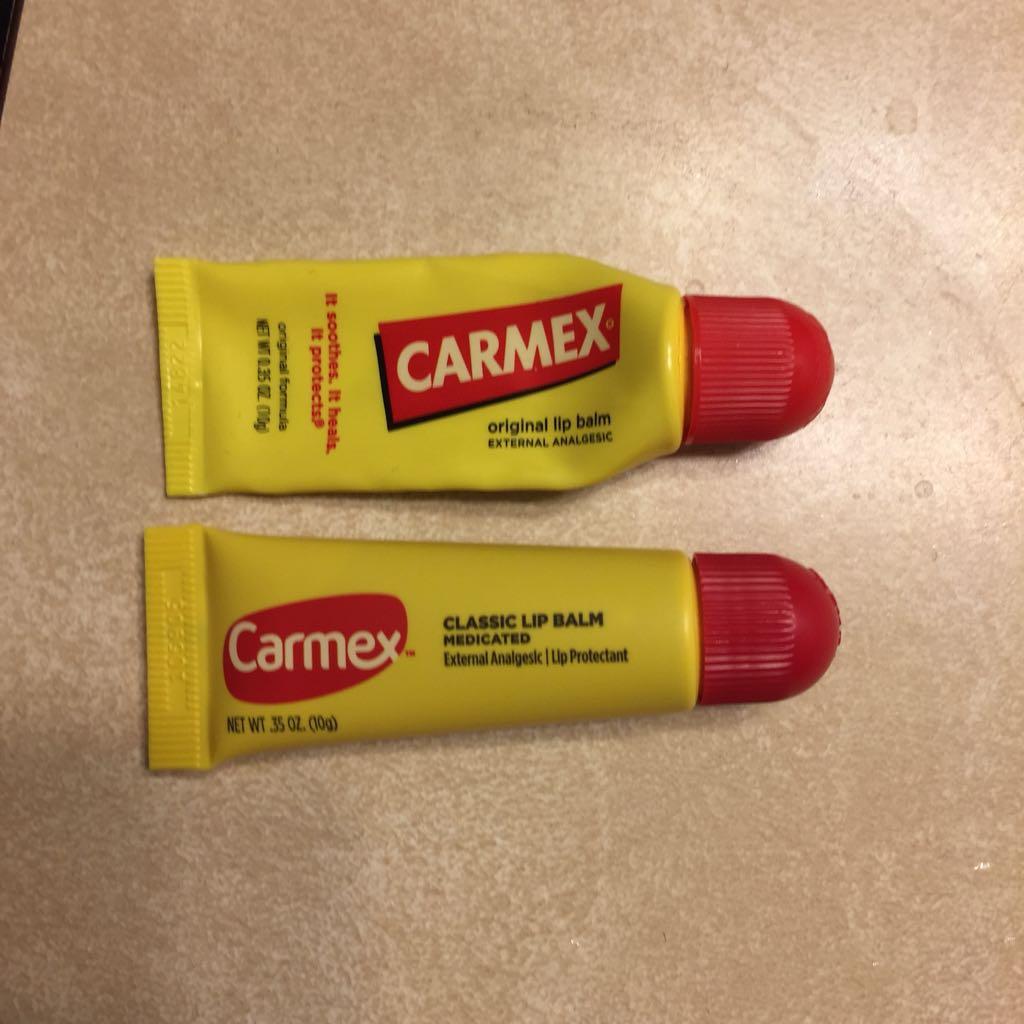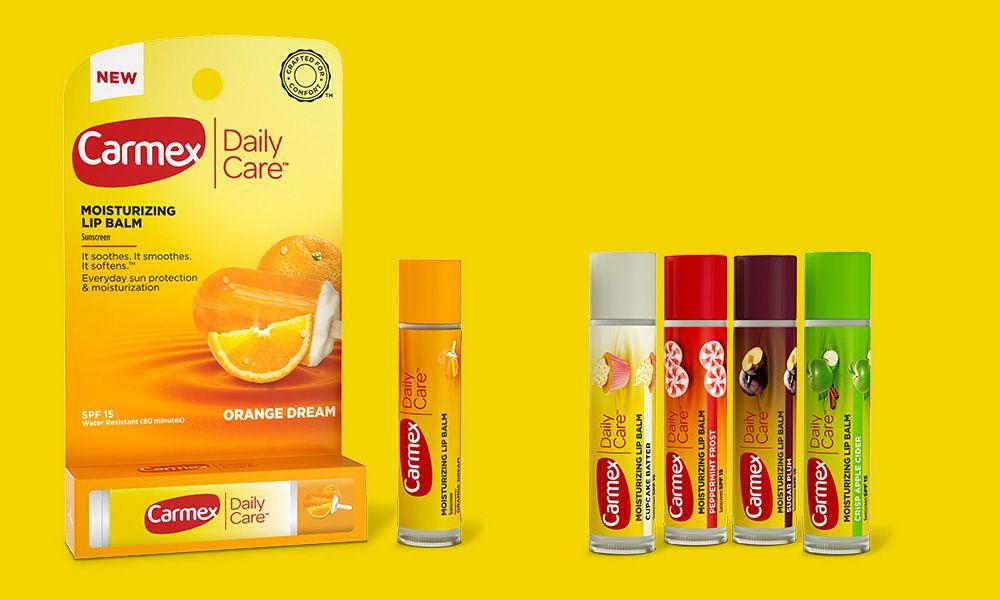Does your lip balm feel like it's more of a fiery kiss than a comforting caress? The tingling, sometimes burning, sensation associated with certain lip balms, particularly those from the popular brand Carmex, is a common experience, and understanding its cause is key to making informed choices about your lip care.
Carmex, a name synonymous with lip relief for generations, has navigated the landscape of lip care with a distinct formulation. The brand, which discontinued production of its Moisture Plus line in the United States, shifted its focus to two innovative lip balm lines: Carmex Comfort Care lip balm, emphasizing natural ingredients, and Carmex Daily Care lip balm, offering a range of flavors. This strategic move underscores the companys commitment to evolving consumer needs and preferences.
To fully understand the sensation, let's delve deeper into the ingredients and their effects. The burning or tingling is largely due to the presence of active components like menthol and camphor. These ingredients, while intended to soothe and provide a cooling sensation, can also cause irritation, especially on already dry or cracked lips.
- Drew Gulliver The Controversy Of The Onlyfans Leak
- Discovering The Life And Influence Of Erika B Mayers
| Feature | Details |
|---|---|
| Ingredient | Menthol, Camphor, Petrolatum, Lanolin, Beeswax, Cocoa Butter, Eucalyptus Oil |
| Primary Function | Moisturizing, creating a protective barrier, soothing, and temporary pain relief. |
| Potential Side Effects | Mild irritation, allergic reactions, decreased natural lip moisture retention. |
| Active Ingredients that causes tingling/burning sensation | Menthol, Eucalyptus Oil, Camphor |
| Emollients | Petrolatum |
| Reference Website | Carmex Official Website |
The question of whether Carmex is "bad" for your lips isn't a simple yes or no. It is a nuanced issue. The formulation acts as a double-edged sword. The emollients in Carmex, particularly petrolatum, work diligently to create a protective barrier, locking in moisture and preventing water loss. This is a key benefit, offering relief to those suffering from chronically dry lips. Carmexs effectiveness in sealing in moisture is a significant selling point, and it indeed excels in preventing water loss, a critical function for lip health.
However, the active ingredients, such as menthol, eucalyptus oil, and camphor, are the source of the debate. They stimulate nerve endings, leading to that familiar tingly sensation. For some, this is a sign that the balm is working, offering a perceived sense of relief. For others, particularly those with sensitive skin or pre-existing lip conditions, it can be irritating. Its worth noting that brands like Burt's Bees, EOS, and Blistex, and even ChapStick, have also been known to trigger reactions in susceptible individuals.
A key ingredient in Carmex is petrolatum. Petrolatum is a moisturizing emollient that creates a protective barrier on lips. This barrier helps to seal in moisture and prevent water loss, providing temporary relief for dry lips. The effectiveness of petrolatum in this regard is well-documented; it is, in essence, providing a shield against the elements and helping the lips to retain their natural hydration.
Now, let's address a common misconception: does Carmex actually dry out your lips? The answer is a bit complicated. The same ingredients that initially soothe can sometimes contribute to a cycle of dryness. If you have dry mouth, the conditioners in Carmex might linger on your lips, potentially drawing away moisture. It is essential to consider the balance between providing relief and preventing further dehydration.
For some people, a mild tingling or burning feeling is not unusual, particularly if their lips are already dry or cracked. This sensation is often caused by the active ingredients like menthol and camphor, which can temporarily irritate sensitive skin. The burning sensation is typically due to the following reasons: active ingredients, and their effects on skin sensitivity.
The experience isnt universal. Some users may experience mild irritation or even allergic reactions. In the most extreme cases, ingredients like phenol, if present, could cause skin discoloration and potentially deeper burns if not addressed promptly. It is why careful ingredient analysis is always important.
Carmex has been a constant presence in the lip care industry for many years. A pivotal moment for the brand was its appearance on Oprahs platform in 2008, which significantly increased its visibility. By that time, the brand had reached the milestone of selling over a billion jars, which speaks volumes about its widespread use and consumer trust.
A frequent question is, Is Carmex good for your lips? The answer lies in individual tolerance and needs. Carmex provides benefits like soothing chapped lips, providing temporary pain relief, and locking in moisture. However, it also has potential side effects like mild irritation, allergic reactions, and the possibility of decreased natural lip moisture retention over time. The benefits are clear: Carmexs ability to lock in moisture, provide a protective barrier, and offer temporary relief can be invaluable.
The ingredients in Carmex may react to the skin and cause it to sting if they come into contact with an open wound. Also, once the lip's surface is damaged, no matter why it has occurred, the flexibility of the lips is also decreased because moisture is lost. Carmex contains active ingredients like menthol, eucalyptus oil, and camphor, which stimulate nerve endings on the lips. This effect is usually mild and temporary but can be uncomfortable for some users. It contains menthol and camphor, which produce that tingly feeling in your lips. In fact, many people are allergic to both of these ingredients, which can make their lips.
Why does Carmex feel this way? The active ingredients in the balm are primarily responsible. Menthol, eucalyptus oil, and camphor are the main culprits. They stimulate the nerve endings in the lips, which can give you a burning sensation. The ingredients may be helpful, but they can also cause a tingling sensation. Many people experience a tingling or burning sensation when using carmex due to its active ingredients and their effects on skin sensitivity.
It is essential to acknowledge the possibility of allergies or sensitivities to certain ingredients, such as menthol, camphor, beeswax, or lanolin, all of which can cause irritation. There's also a possibility you could be allergic to some ingredients in carmex, such as menthol, camphor, beeswax, or lanolin, which can cause lip irritation for some people. The burning sensation you might feel is often caused by the same ingredients that are supposed to help: Menthol, eucalyptus oil, and camphor.


